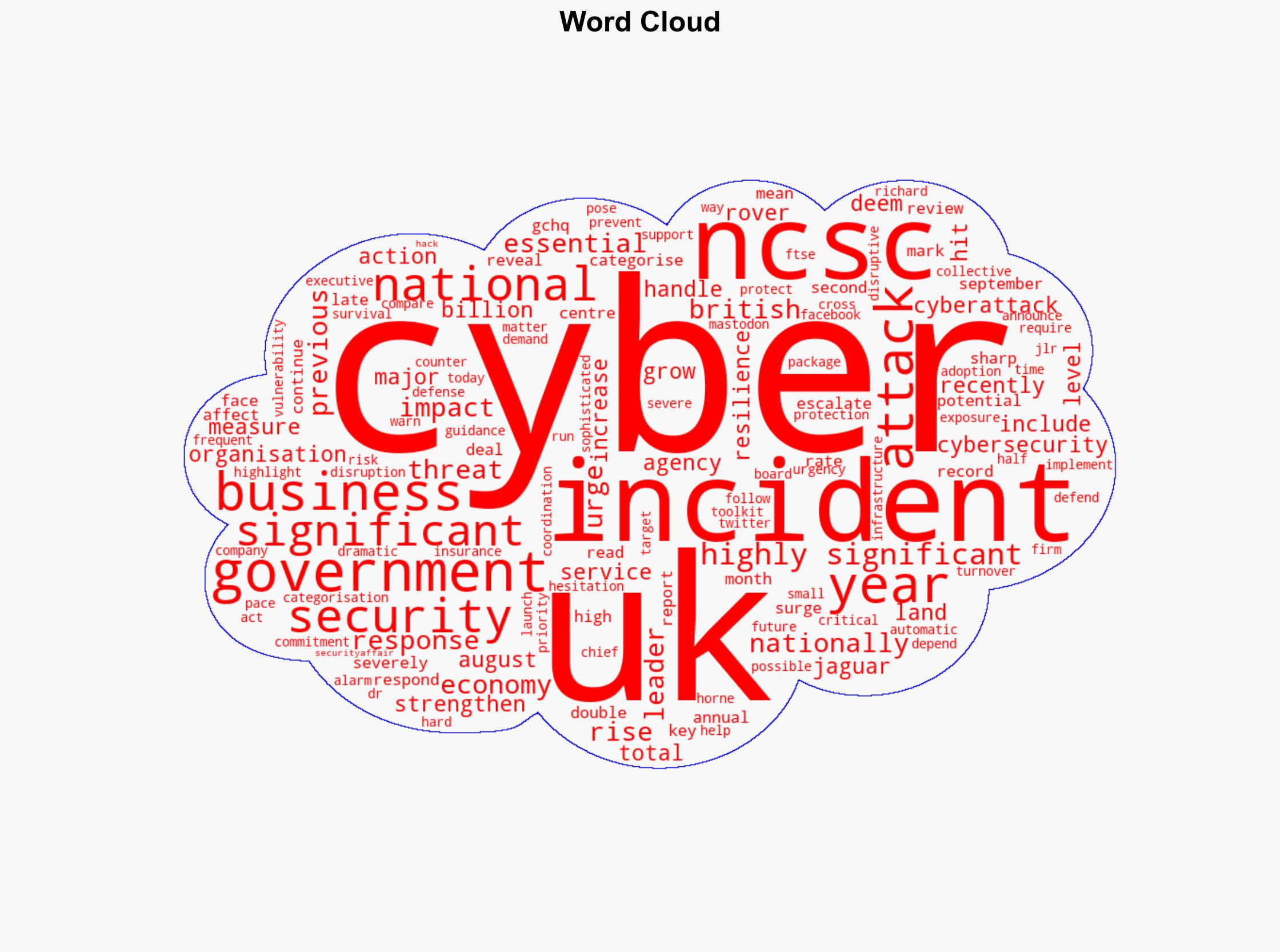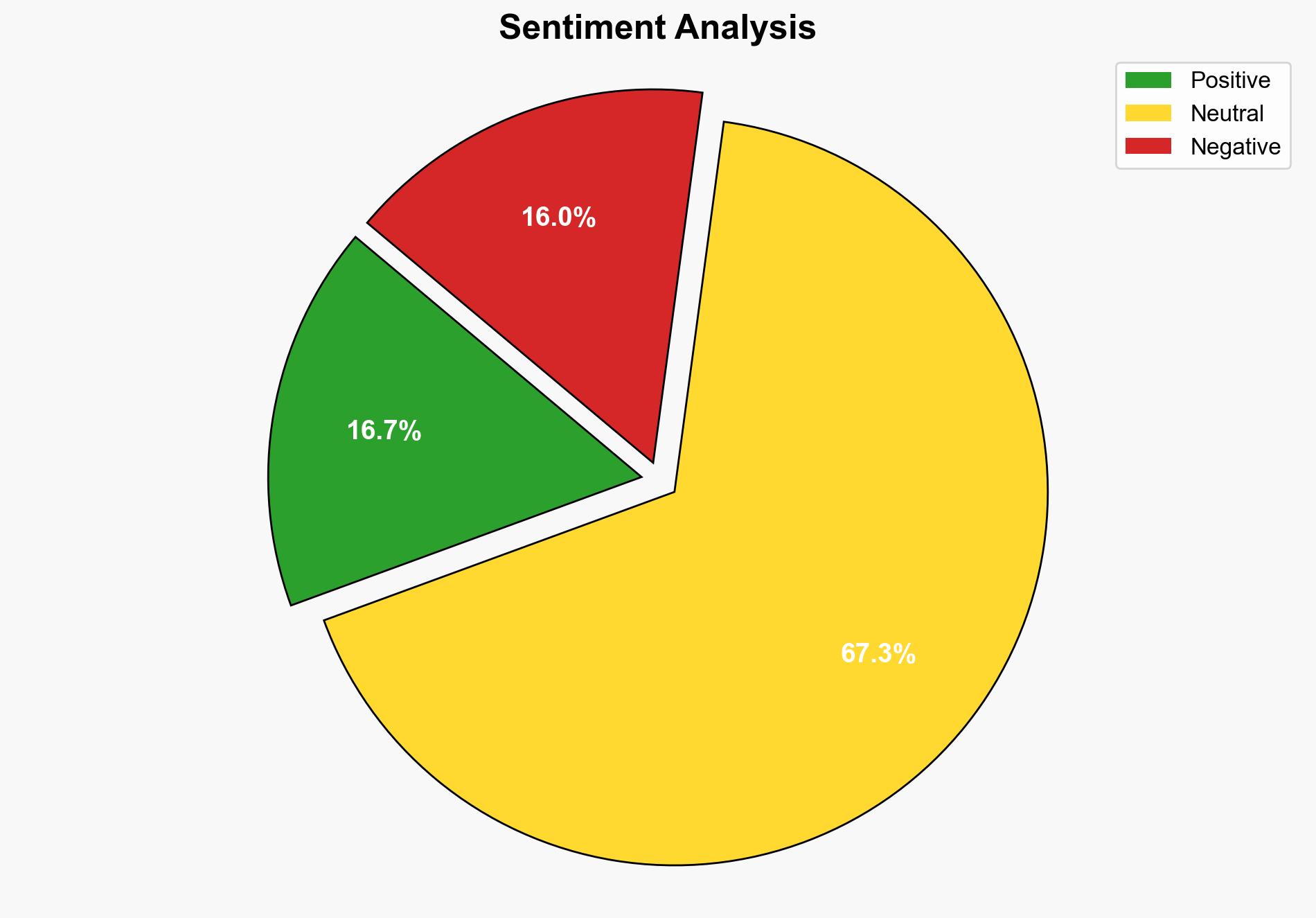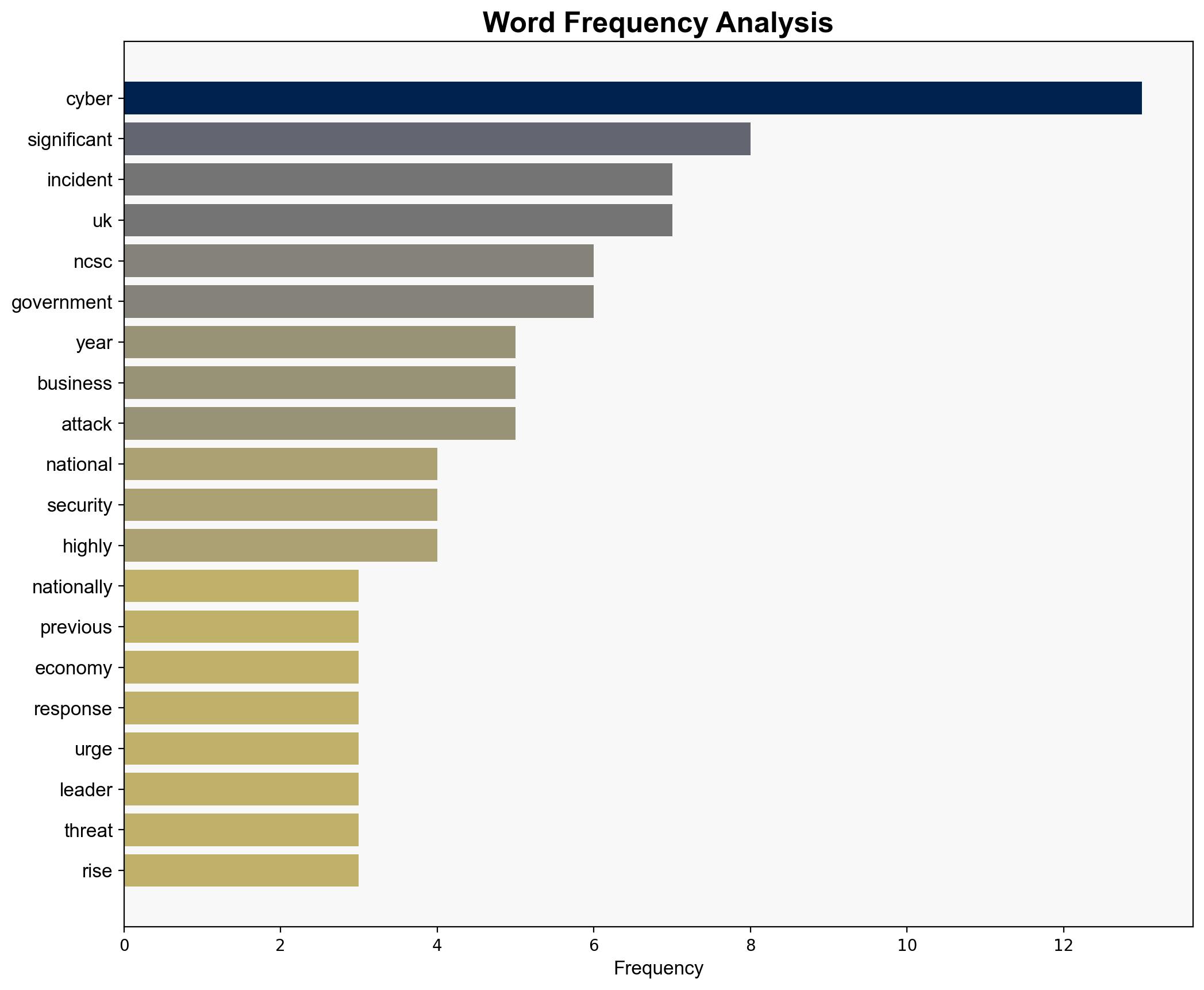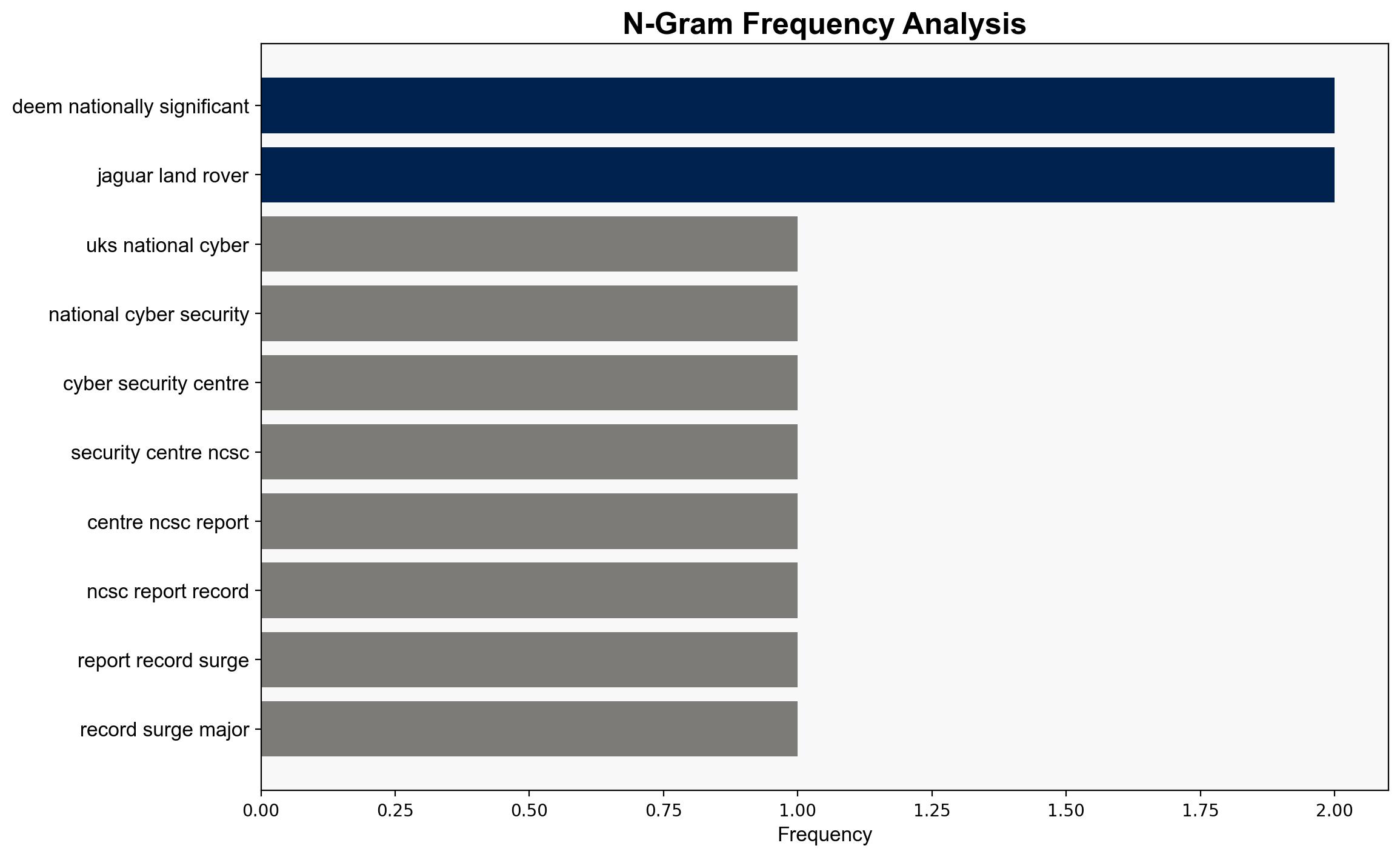UK NCSC Reports 429 cyberattacks in a year with nationally significant cases more than doubling – Securityaffairs.com
Published on: 2025-10-14
Intelligence Report: UK NCSC Reports 429 Cyberattacks in a Year with Nationally Significant Cases More Than Doubling – Securityaffairs.com
1. BLUF (Bottom Line Up Front)
The UK is experiencing a significant increase in cyberattacks, with nationally significant cases more than doubling. The most supported hypothesis is that this surge is due to heightened geopolitical tensions and increased capabilities of state-sponsored actors. Confidence level: Moderate. Recommended action: Enhance cybersecurity measures across critical infrastructure and promote public-private partnerships for improved resilience.
2. Competing Hypotheses
Hypothesis 1: The increase in cyberattacks is primarily driven by state-sponsored actors exploiting geopolitical tensions to target UK critical infrastructure and services.
Hypothesis 2: The rise in cyberattacks is largely due to increased cybercriminal activity, taking advantage of vulnerabilities in the UK’s digital infrastructure for financial gain.
3. Key Assumptions and Red Flags
Assumptions:
– Hypothesis 1 assumes a direct correlation between geopolitical tensions and cyberattack frequency.
– Hypothesis 2 assumes that financial motives are the primary driver for the increase in attacks.
Red Flags:
– Lack of specific attribution to state or non-state actors in the report.
– Potential bias in interpreting the rise in attacks as solely state-sponsored without concrete evidence.
4. Implications and Strategic Risks
The escalation in cyberattacks poses significant risks to national security, economic stability, and public trust in digital services. A failure to address these threats could lead to severe disruptions in essential services and economic losses. The potential for cascading effects, such as retaliatory cyber actions, could further destabilize the region.
5. Recommendations and Outlook
- Enhance cybersecurity protocols across critical sectors, prioritizing those deemed nationally significant.
- Foster collaboration between government and private sectors to share threat intelligence and best practices.
- Scenario Projections:
- Best Case: Strengthened defenses deter further attacks, and public-private partnerships improve resilience.
- Worst Case: Continued escalation leads to significant disruptions in critical services and economic downturn.
- Most Likely: Incremental improvements in cybersecurity measures mitigate some risks, but threats persist.
6. Key Individuals and Entities
– Richard Horne, Chief Executive of NCSC
– Jaguar Land Rover (JLR), impacted by recent cyberattacks
7. Thematic Tags
national security threats, cybersecurity, counter-terrorism, regional focus





